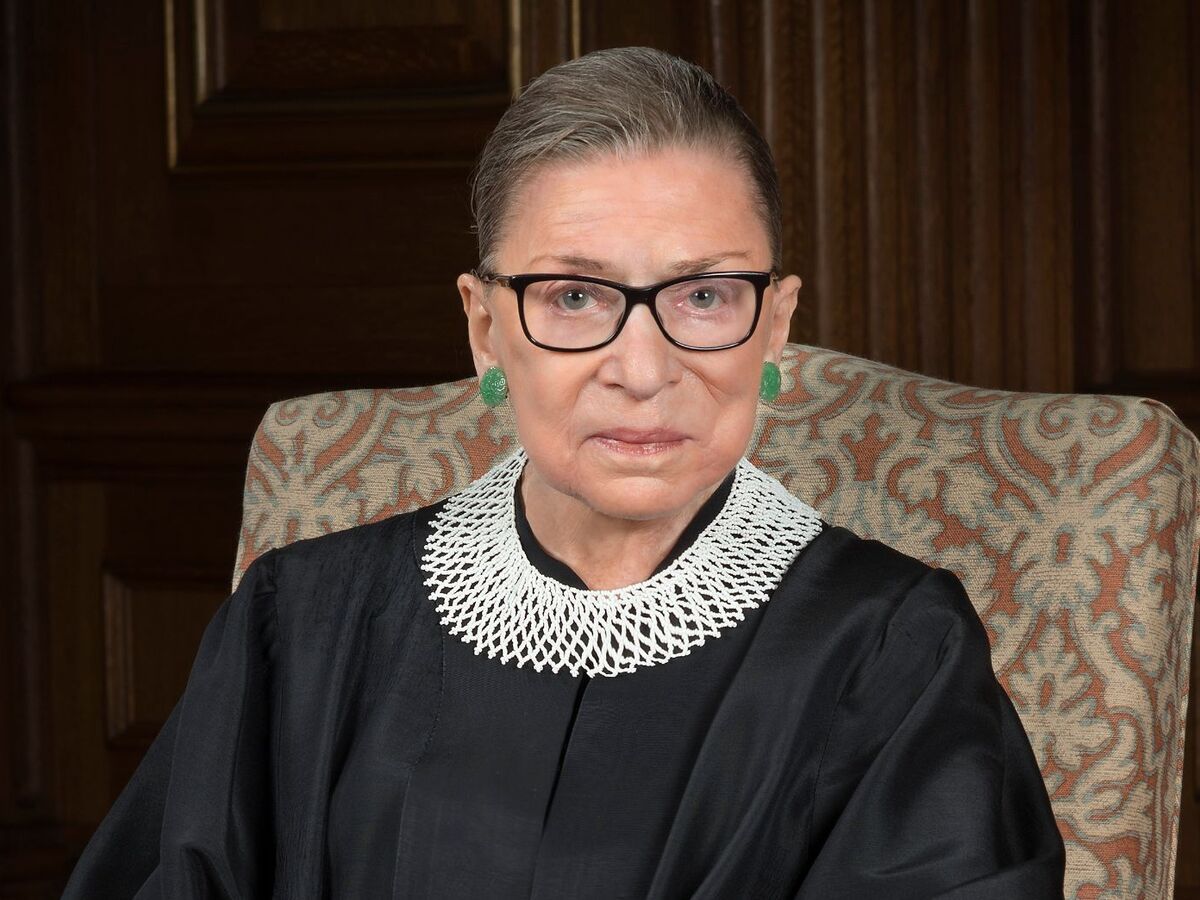Image


Less than 24 hours after the passing of Ruth Bader Ginsburg, it appears that a partisan battle has started over her replacement. The new justice could potentially impact the decisions of the Supreme Court for years to come. Currently, six of the remaining eight justices have been nominated by a Republican president. If Ginsburg's replacement is nominated by President Donald Trump, it would make six justices that were nominated by a Republican president.
Normally, the current president would make the nomination when there is a vacancy on the Supreme Court. Since the presidential election is in less than 50 days, many Democrats and some Republicans want to wait until after the election to vote on a new justice. Judge Antonin Scalia died shortly before the 2016 election and Republicans in the Senate refused to vote on Merrick Garland, who was nominated by President Barack Obama. It has been reported that Ginsburg's dying request was that she not be replaced by someone nominated by Trump.
Trump seemed to indicate that he would be making a nomination soon. This morning, Trump tagged the GOP in the following tweet: "We were put in this position of power and importance to make decisions for the people who so proudly elected us, the most important of which has long been considered to be the selection of United States Supreme Court Justices. We have this obligation, without delay!"
If Trump's nominee is confirmed, it would be the third justice to be nominated by him. He previously nominated Neil Gorsuch and Brett Kavanaugh. It is unusual for a president to get to choose three nominees in one four-year term. Even though they both served two terms, Presidents George W. Bush and Barack Obama each had two nominees confirmed by the Senate. Trump could potentially be the first president since President Ronald Reagan to have more than two nominees confirmed to the Supreme Court.
One of the people on Trump's most recent list of possible Supreme Court nominees, which was released earlier this year, included Senator Ted Cruz. Cruz is also a former presidential nominee. Since the passing of Ginsburg, Cruz's comments in interviews and on social media seem to indicate that he would favor voting on Trump 's nominee before the election. Cruz retweeted one of Sen. Chuck Schumer's tweets from 2016 when he said that the Senate has confirmed 17 Supreme Court justices in election years.
In 2016, there was support from key Democrats that supported voting on a Supreme Court nominee before that year's presidential election. Hilary Clinton made a statement saying, "Holding a Supreme Court seat open dishonors our Constitution. The senate has a Constitutional responsibility to fill the seat." Current Democratic presidential nominee Joe Biden said in 2016 that he would go forward with the nomination process as chairman if the nominee had been selected with the advice of the Senate. Cruz tweeted both statements earlier today.
Since Ginsburg was such an advocate for women's rights, many people believe that it is very likely that Trump will nominate another woman as her replacement. His tweet from earlier today did not seem to indicate if that would be the case. One of the women on his most recent list is Judge Barbara Lagoa, who was the first Cuban-American to be appointed to Florida's Supreme Court.
There was a time when a nominee would need 60 votes in the Senate to be approved, but a nominee can become a justice with a majority of the vote. This is because Democrats made a change that would not require 60 votes. Some people believe 60 votes should still be the standard. Half of the eight current judges have received 60 votes. Neither of Trump's previous two nominees have received 60 votes. Samuel Alito, who was nominated by President George W. Bush, and Clarence Thomas, who was nominated by President George H.W. Bush, also received less than 60 votes.
There are 53 Republicans in the Senate. Assuming that all of them vote for the nominee, there would be enough votes to confirm them. It may not matter who is nominated, because some Republicans seem to have indicated that they wouldn't vote for any nominee before the election. One of those is Senator Susan Collins. She posted a statement on Twitter that says, in part, that she has no problem with starting the process of the Judicial Review Committee reviewing the credentials of his nominee. However, she wants to wait until after the election for the vote. "In fairness to the American people, who will either be electing the President or selecting a new one, a decision on the lifetime appointment to the Supreme Court should be made by the President who is elected on November 3rd," she said in the statement.
Don't forget to sign up for the FREE e-mail newsletter. Clickwarrencountyonlinenews.com/subscribe to make sure you get your community news delivered to your inbox every morning.